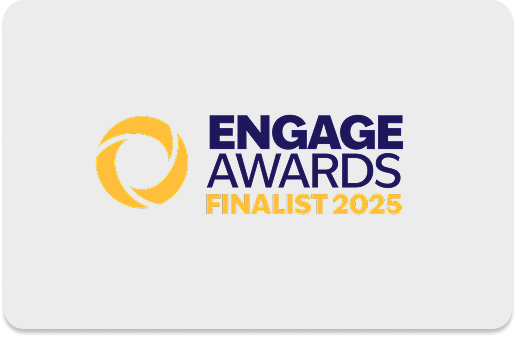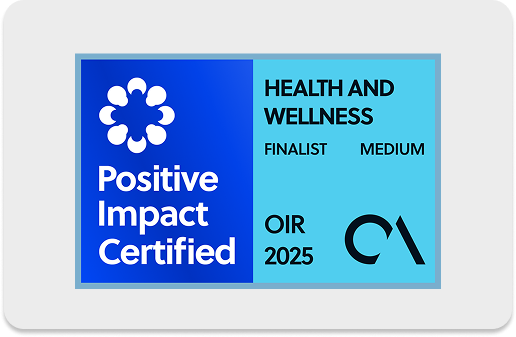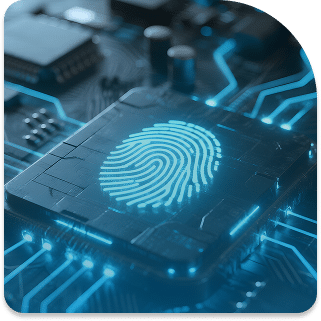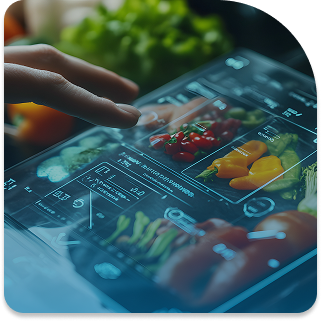What are inbound call centers, and why do companies need them? Inbound call centers receive and manage incoming calls, typically from existing customers or prospective customers, to provide support, information, or assistance.
In contrast, outbound call center agents make outgoing calls, primarily to potential customers, for sales, market research, or spreading awareness.
If you are still confused between the two, read on. This article explores four key differences between inbound and outbound call centers, highlighting their unique roles, types of calls handled, required skills, and the technology used.
Table of Contents
1. Purpose And Function
The purpose and function of an inbound call center define its core activities and objectives. This difference is foundational, as it influences the type of work done, the skills required, and the organization’s overall goals.
Inbound Call Centers
Understanding inbound call center services is crucial for businesses focused on customer support. These centers are designed to handle incoming calls from existing and prospective customers.
They primarily provide customer support, answer inquiries, resolve issues, and offer advanced technical support. By addressing customer service inquiries promptly and efficiently, they can increase customer satisfaction.
Outbound Call Centers
In contrast, outbound call centers focus on making outgoing calls to reach customers. Their primary function is to generate sales, conduct market research, and spread awareness about products or services.
Outbound agents often engage in cold calling, appointment setting, and telesales. The primary objective of an outbound call center is to reach potential customers and encourage them to make a purchase or engage with the company’s offerings.

2. Types Of Calls Handled
The types of calls handled are critical distinctions that dictate the daily operations within a call center. Understanding this difference helps define the training and resources needed for each type of call center.
Inbound Call Centers
Inbound call centers receive calls from customers seeking assistance or information. These calls can include customer service inquiries, technical support issues, billing questions, etc.
Inbound call centers are equipped to handle high volumes of calls, ensuring that customers receive the help they need promptly.
Outbound Call Centers
The role of outbound call centers is to initiate contact with potential customers through various outbound calls.
These include sales pitches, follow-ups, phone surveys, and market research. Outbound agents use strategies such as offering promotions, scheduling appointments, and collecting market research data.
This proactive approach allows outbound call centers to actively engage with individuals rather than waiting for incoming contacts. The goal is to reach potential clients and promote the company’s products or services.
3. Skills And Training Required

The skills and training required for agents highlight the distinct competencies needed in inbound versus outbound call centers. These differences stem from the varied nature of interactions in each type of call center.
Inbound Call Centers
Agents in inbound call centers must excel in customer service and communication skills.
They must be patient, empathetic, and knowledgeable about the company’s products and services.
They must provide exceptional customer service and resolve issues effectively, requiring strong problem-solving abilities and a deep understanding of company policies.
Outbound Call Centers
Outbound call center agents need to be persuasive and confident in their communication. They must be skilled in sales techniques to convince potential customers to take action, whether making a purchase or scheduling an appointment.
Outbound agents also require a good understanding of the company’s offerings, resilience, and the ability to handle rejection, as outbound calling can involve a high volume of unsuccessful calls.
4. Technology And Tools Used
The technology and tools used in call centers are tailored to the specific needs of handling inbound and outbound communications. The sophistication and type of software and hardware can significantly impact the efficiency and effectiveness of call center operations.
Inbound Call Centers
Inbound call centers often utilize advanced software to manage incoming calls, route customers to the appropriate departments, and track customer interactions.
This software may include features like interactive voice response (IVR) systems, which help automate call routing and provide customers with self-service options.
Outbound Call Centers
Outbound call centers use specialized software to manage outgoing calls. This includes software with features like automated dialers, which streamline the process of making calls, and CRM systems, which help agents track customer information and interactions.
These tools are essential for managing outbound communication and ensuring efficient reach to potential customers. Outbound call centers may also use analytics tools to track campaign effectiveness and optimize strategies.
What Are The Types Of Inbound Calls?
Inbound call centers handle various calls, which can be categorized into several types.
Customer Service Inquiries
These calls involve assisting customers with billing questions, order status, and product information. Inbound call center agents provide exceptional customer service by addressing these inquiries promptly and efficiently, aiming to improve customer satisfaction.
Technical Support
Calls in this category involve helping customers resolve technical issues with products or services. Agents specializing in technical support must be knowledgeable and patient as they guide customers through troubleshooting steps.
Sales Inquiries
Sometimes, inbound calls are from prospective customers interested in purchasing products or services. Inbound agents must be skilled in sales techniques, as these calls present an opportunity to convert inquiries into sales.
Complaint Resolution
These calls involve addressing and resolving customer complaints. Agents must be empathetic and skilled in conflict resolution to turn a negative experience into a positive one, thereby increasing customer loyalty.
What Are Outbound Calls Categories?
Understanding outbound call centers involves recognizing the two primary categories of outbound calls: cold calls and warm calls. These distinctions are crucial for designing effective call center strategies.
Cold Calls
Cold calls are made to potential clients without prior interaction with the business. They are often unsolicited and aim to introduce the company’s products or services to new prospects.
Cold calling requires outbound agents to be persuasive and skilled at overcoming objections. Recipients may not be expecting the call and could be resistant to the sales pitch. It’s often used in outbound call center operations to spread awareness about new offerings or promotions.
Warm Calls
On the other hand, warm calls involve contacting individuals who have previously interacted with the company in some capacity. This could include former customers, individuals who have expressed interest in the company’s products or services, or those who existing customers have referred to.
Since the recipients are somewhat familiar with the company, warm calls generally have a higher success rate than cold calls. Warm calls often follow up on previous inquiries, provide additional information, or encourage further engagement with the company’s offerings.

Businesses That Should Use Inbound Or Outbound Call Centers
Inbound call centers are ideal for businesses focused on customer service and support. In contrast, outbound call centers are beneficial for companies looking to drive sales, conduct market research, and engage with potential customers.
Choosing the right type of call center depends on a business’s specific needs and objectives.
Businesses That Should Use Inbound Call Centers
- Customer Service-Oriented Companies: Businesses in retail, telecommunications, and utilities often require inbound call centers to handle customer inquiries, complaints, and support requests. They focus on providing exceptional customer service to enhance customer satisfaction and loyalty.
- Technical Support Providers: Companies offering tech products or services, such as software, hardware, or internet services, benefit from inbound call centers to assist customers with troubleshooting and technical issues.
- Financial Services: Banks, insurance companies, and investment firms use inbound call centers to manage account inquiries, transaction issues, and customer service.
- Healthcare: Medical facilities, insurance providers, and pharmaceutical companies can utilize inbound call centers to handle appointment scheduling, patient inquiries, and billing questions.
- Travel and Hospitality: Airlines, hotels, and travel agencies use inbound call centers to book reservations, provide travel information, and handle customer issues.
Businesses That Should Use Outbound Call Centers
- Sales-Driven Companies: Businesses in real estate, insurance, and retail often use outbound call centers for lead generation, telesales, and following up with potential customers.
- Market Research Firms: Companies conducting surveys and collecting data can benefit from outbound call centers to gather information from a large audience.
- Event Management Companies: Organizations that manage events, such as conferences or seminars, use outbound call centers for attendee registration and promotional outreach.
- Political Campaigns and Non-Profits: Outbound call centers are valuable for fundraising, awareness campaigns, and voter outreach.
- B2B Services: Companies providing business-to-business services, such as consulting or software solutions, can use outbound call centers for appointment setting and nurturing client relationships.
Emerging Technologies In Call Centers
Thanks to emerging technologies, the landscape of call center operations is rapidly evolving. These technologies are transforming both inbound and outbound call centers and offering new ways to enhance efficiency and customer experience.
- AI and Chatbots: AI-powered chatbots are increasingly used in call centers to handle routine inquiries and provide initial customer support. These virtual assistants can answer common questions, process simple transactions, and route customers to the appropriate department. This technology reduces the workload on human agents and provides faster service to customers.
- Machine Learning and Predictive Analytics: Machine learning algorithms can analyze vast amounts of data to predict customer behavior and preferences. In outbound call centers, predictive analytics can be used to identify potential customers who are more likely to respond positively to a sales pitch. This helps optimize outbound calling strategies and increase conversion rates.
- Speech Analytics and Sentiment Analysis: These tools analyze customer interactions to assess service quality and identify areas for improvement. By monitoring tone, pitch, and keywords, call centers can gauge customer sentiment and make necessary adjustments to improve customer satisfaction.
- Cloud-Based Call Center Software: Cloud technology enables call centers to operate more flexibly, allowing agents to work from different locations. This is especially useful for managing a remote workforce and scaling operations quickly.
Conclusion About Inbound Vs Outbound Call
By recognizing the differences between inbound and outbound call centers, businesses can make informed decisions about which type of call center services best meet their needs, ultimately enhancing customer satisfaction and achieving their business objectives.
Choosing the right call center solution is crucial for optimizing customer interactions and driving business growth. Gear Inc offers comprehensive call center services that include inbound, outbound, and automated call handling.
By outsourcing to a specialized provider like Gear Inc, businesses can benefit from reduced operational expenses and significantly improved customer service quality. Contact us today!
Frequently Asked Questions About Inbound Vs Outbound Call
What Skills Are Essential For Inbound Call Center Agents?
Key skills include communication, problem-solving, empathy, and product knowledge.
What Skills Are Essential For Outbound Call Center Agents?
Important skills include persuasion, resilience, sales techniques, and objection handling.
Can Call Centers Handle Both Inbound And Outbound Calls?
Yes, some call centers, known as blended call centers, are equipped to handle both types.
What Are Automated Call Centers?
Automated call centers use technology like chatbots and IVR systems to handle customer interactions without human intervention.
What Are The Challenges Of Outbound Calling?
Challenges include dealing with rejection, maintaining motivation, and complying with industry standards and regulations such as the Telephone Consumer Protection Act.













